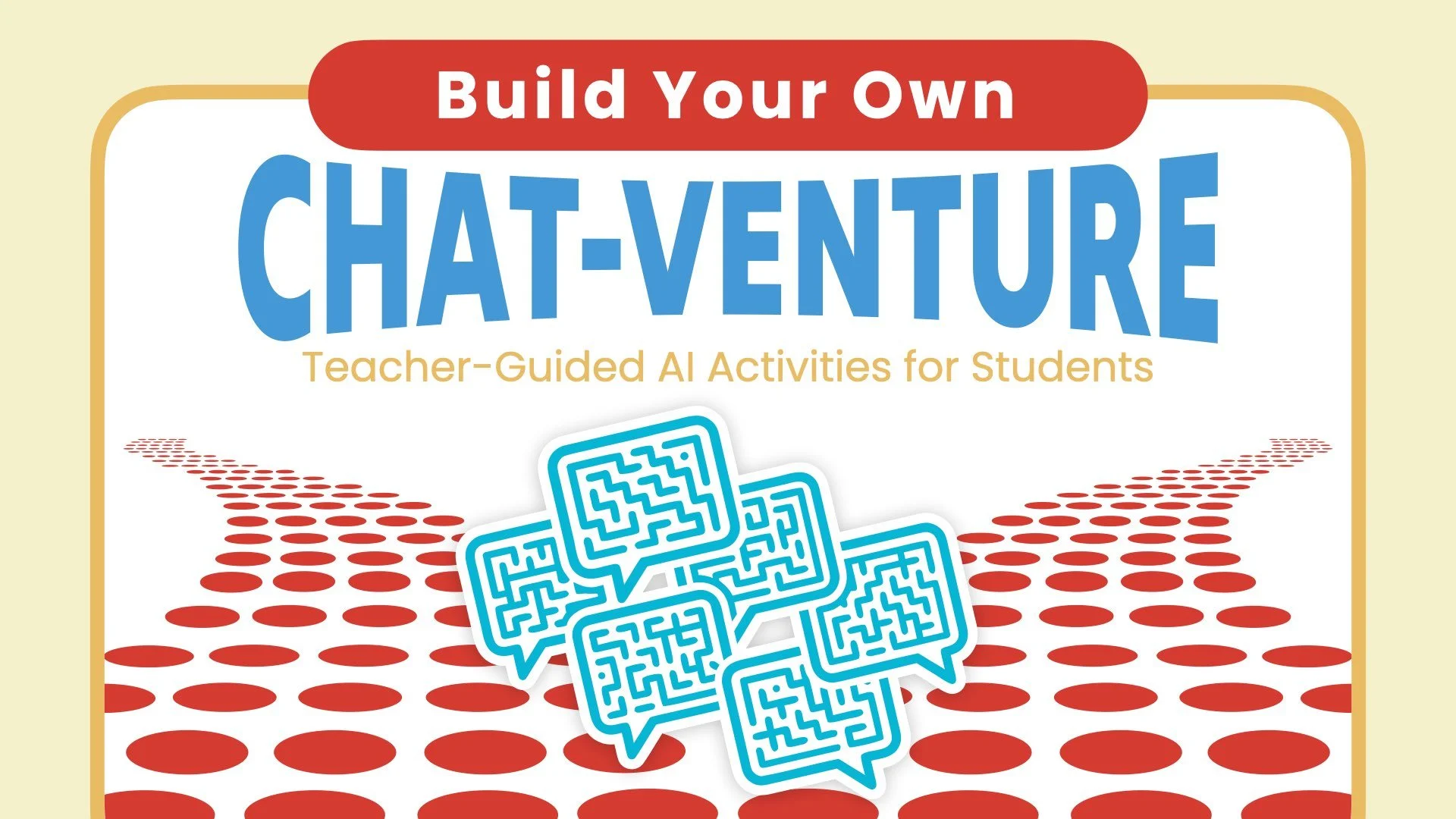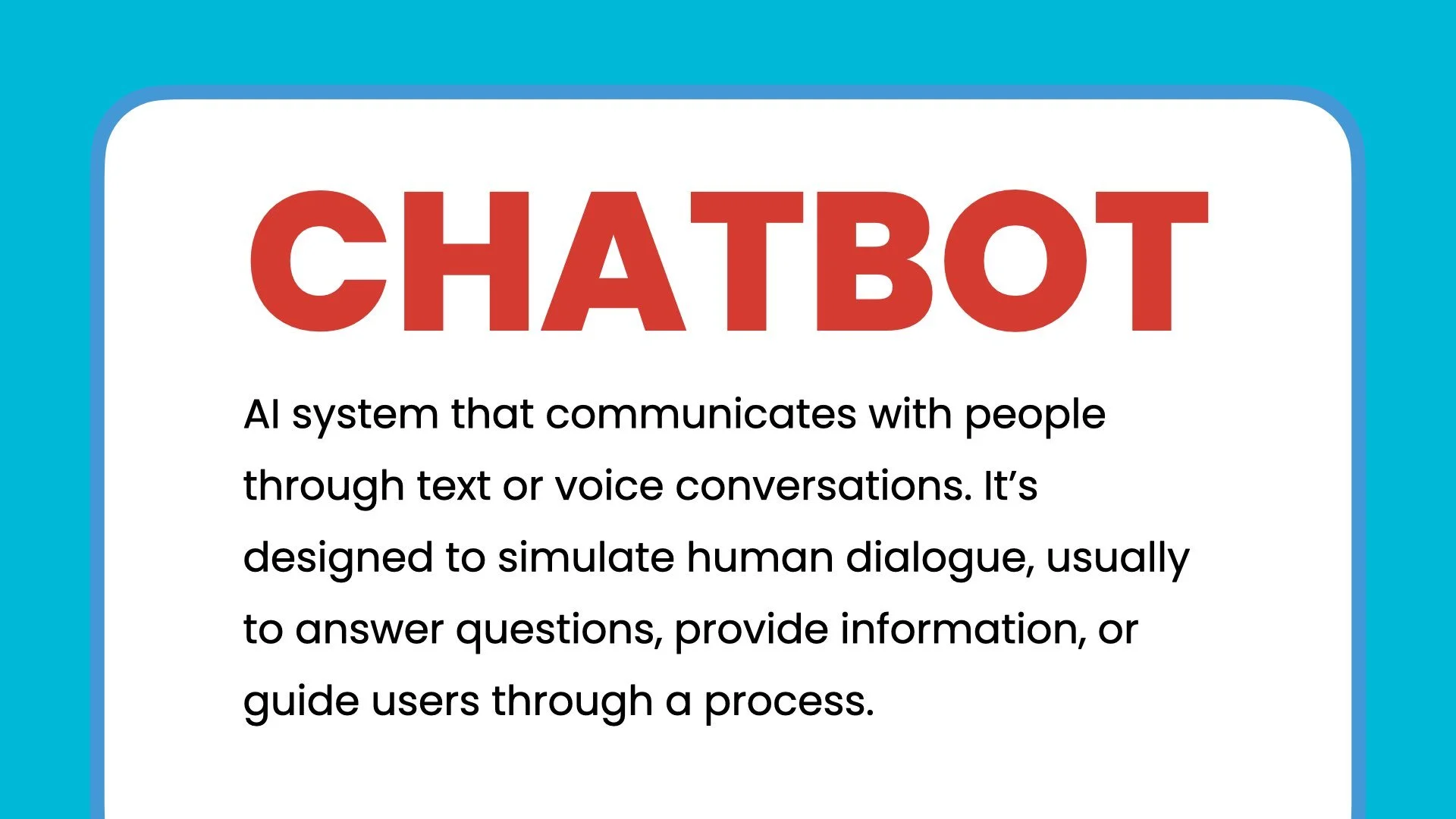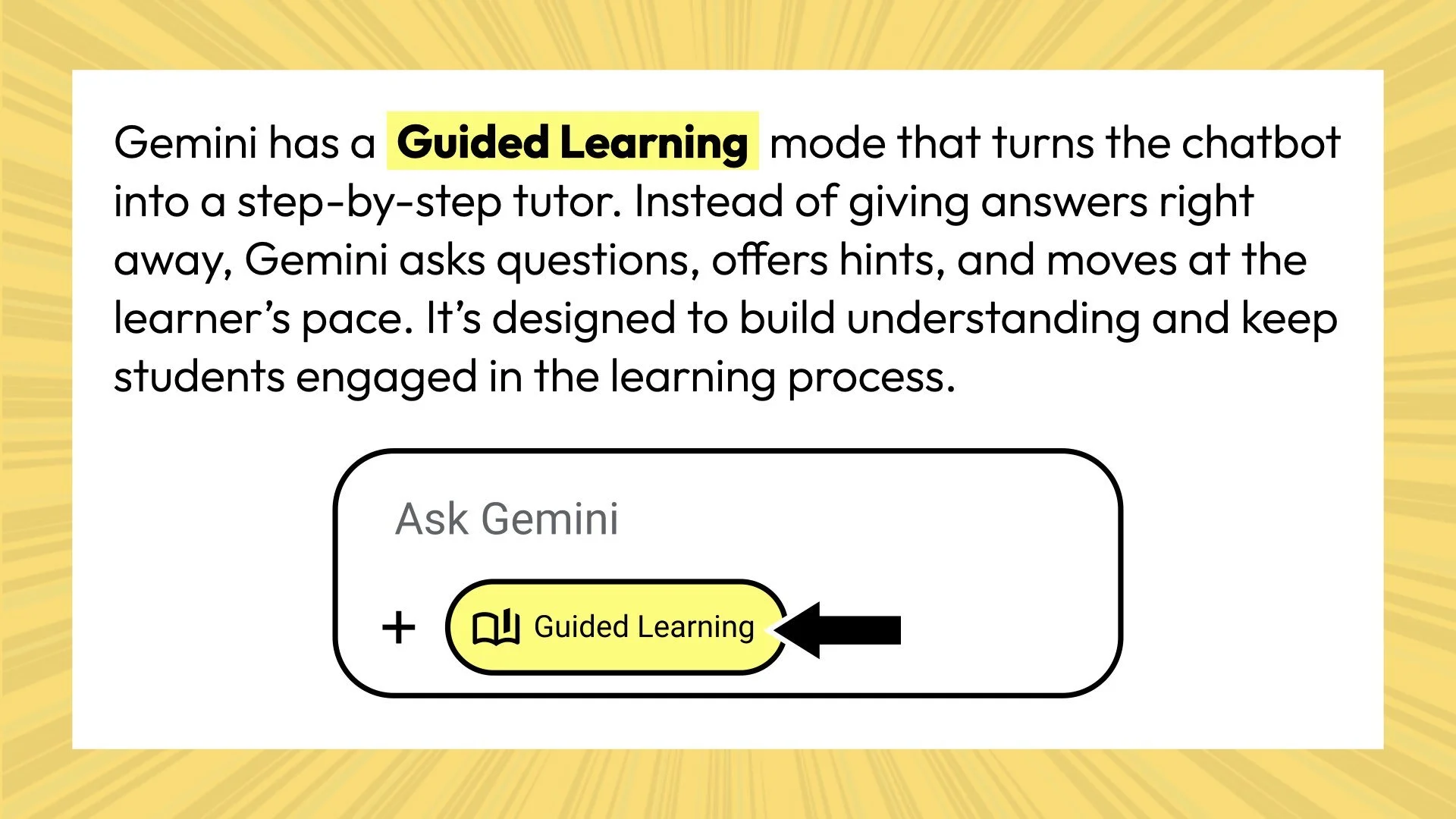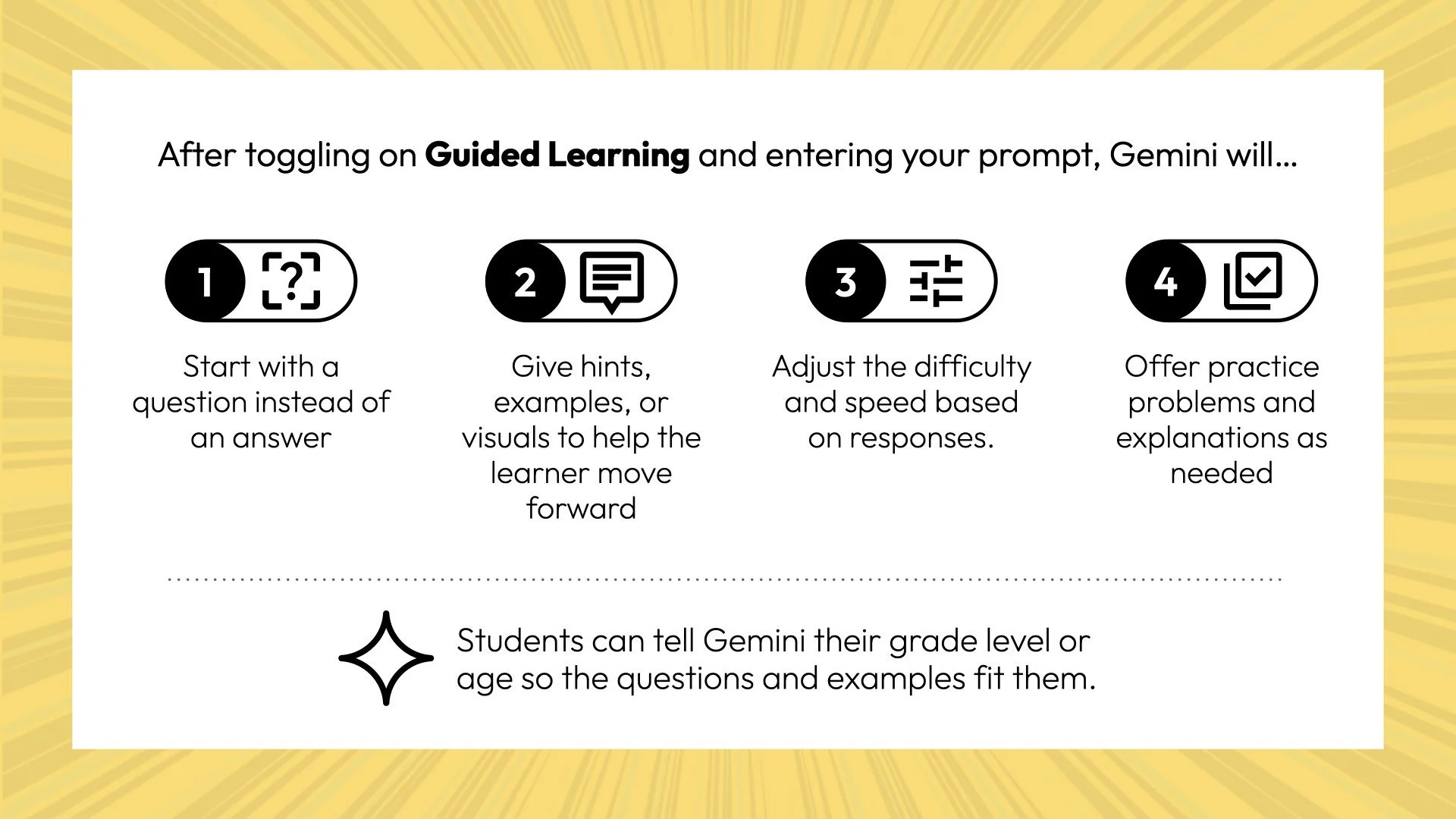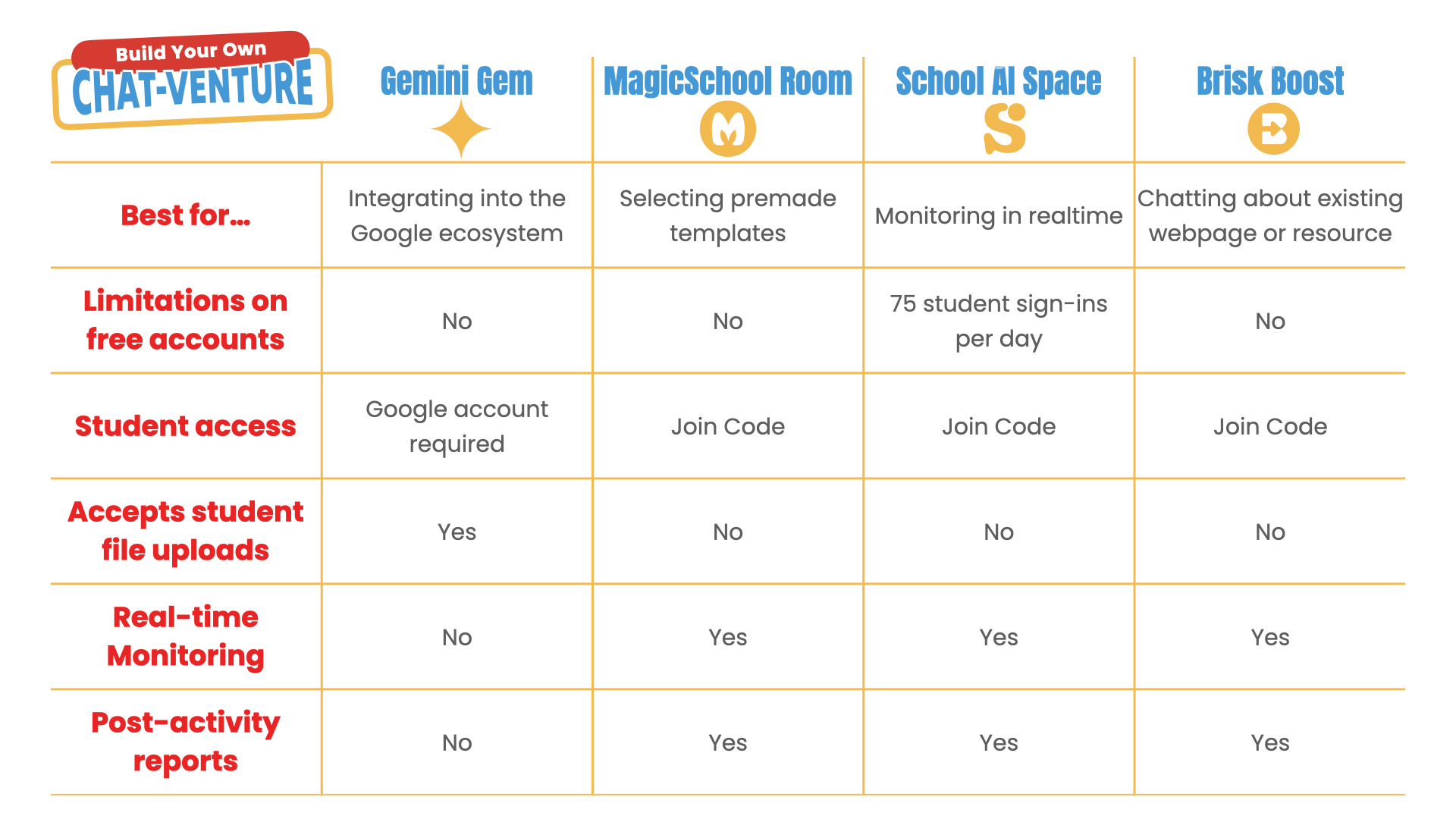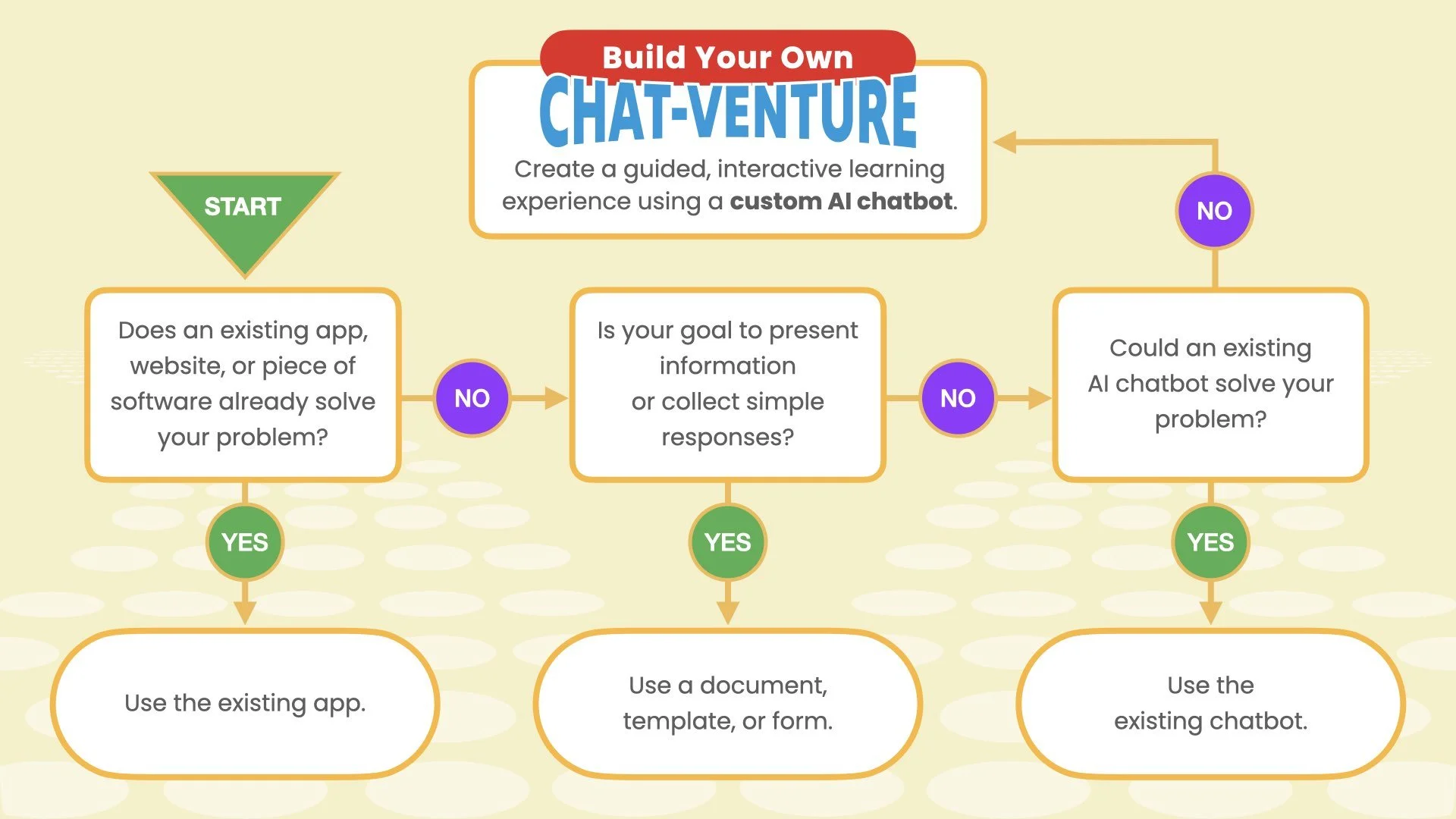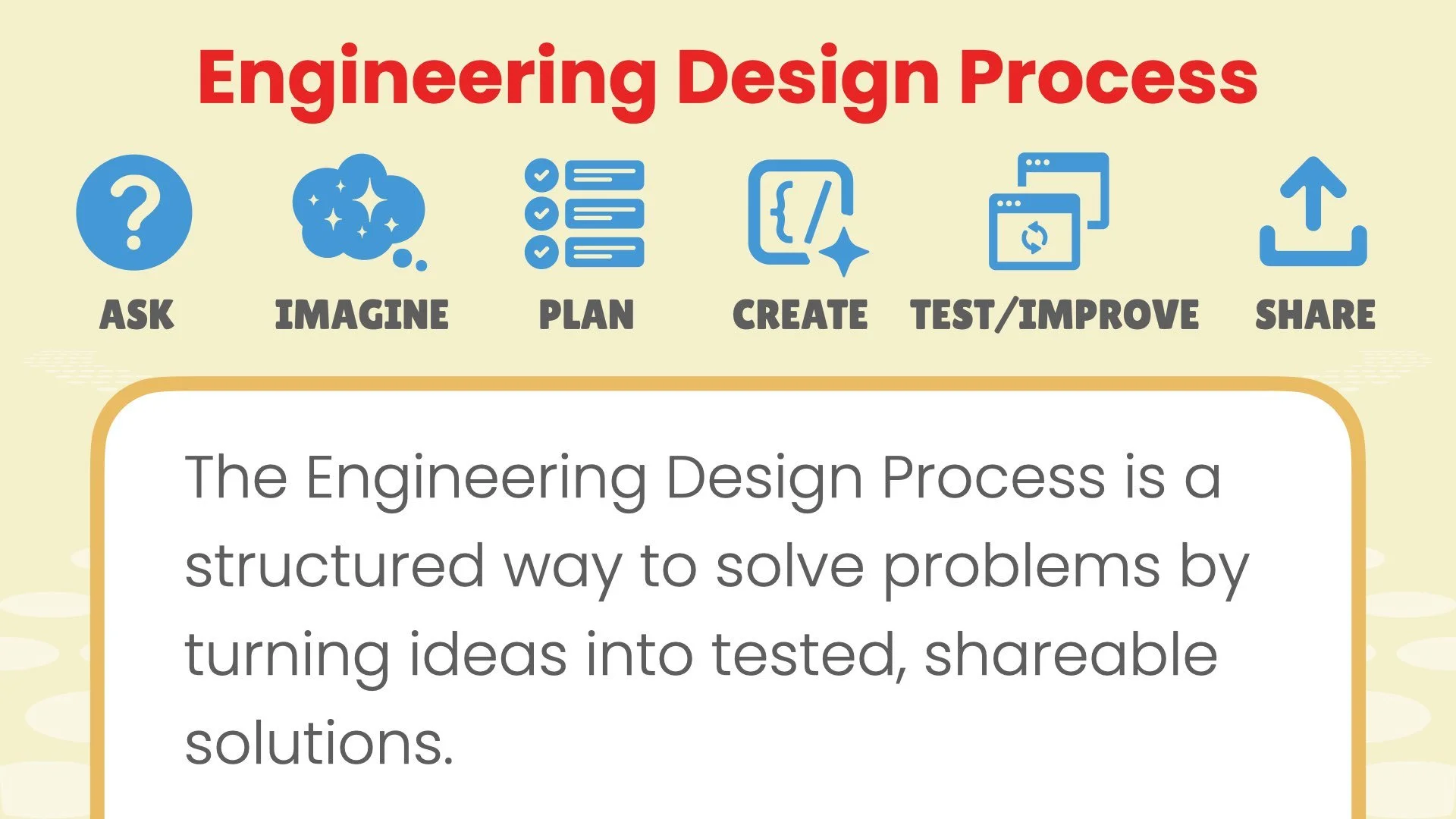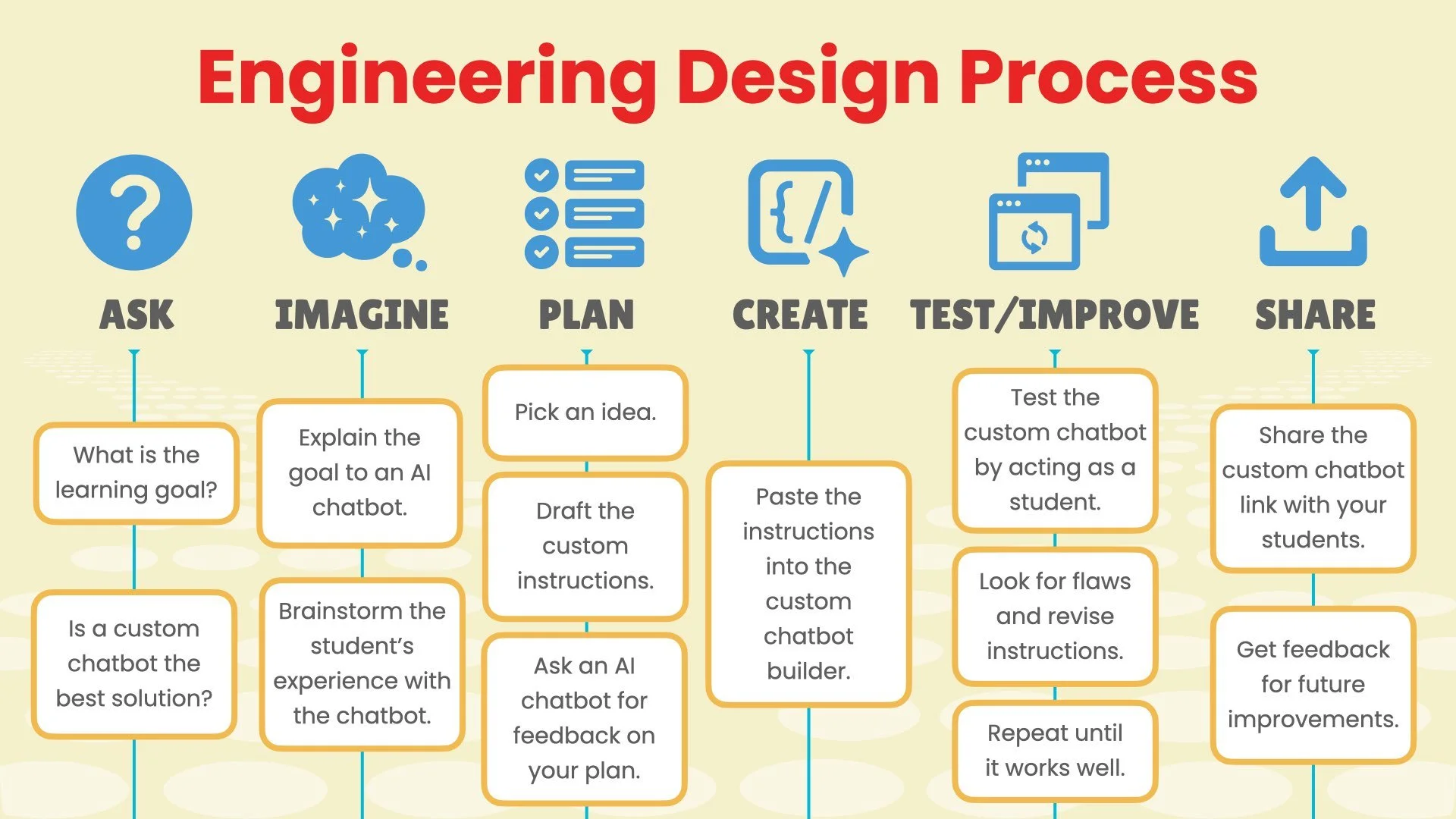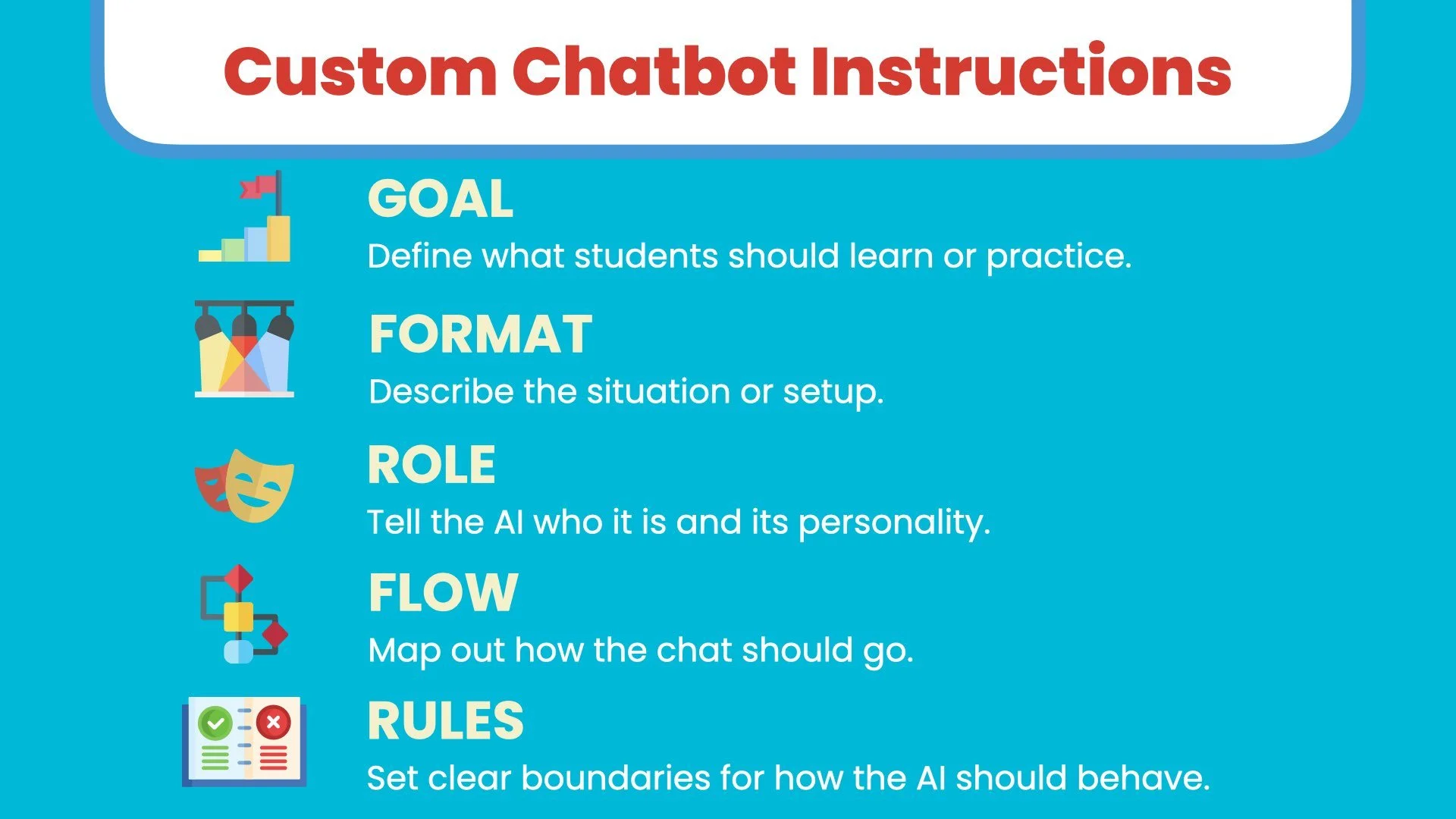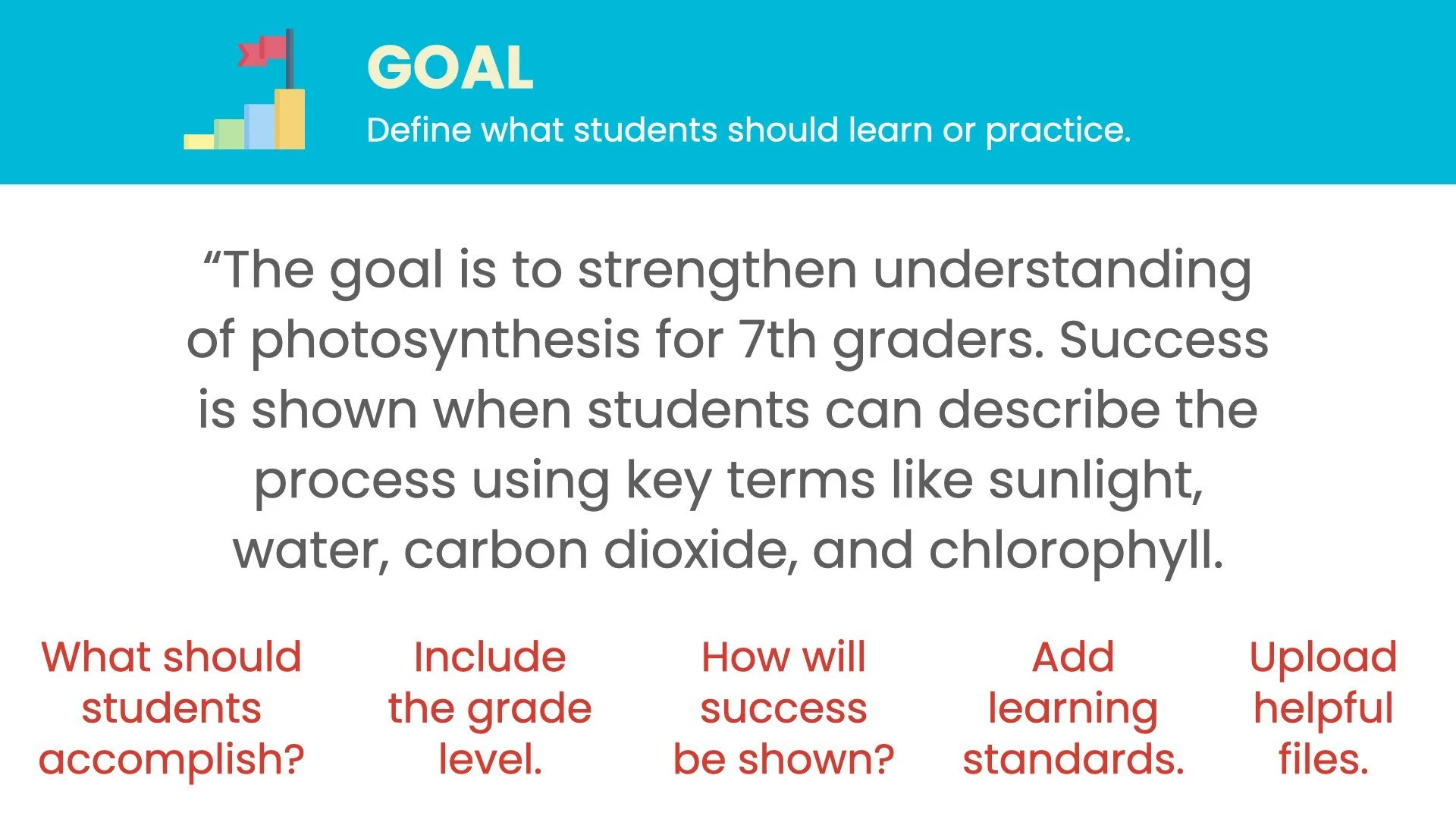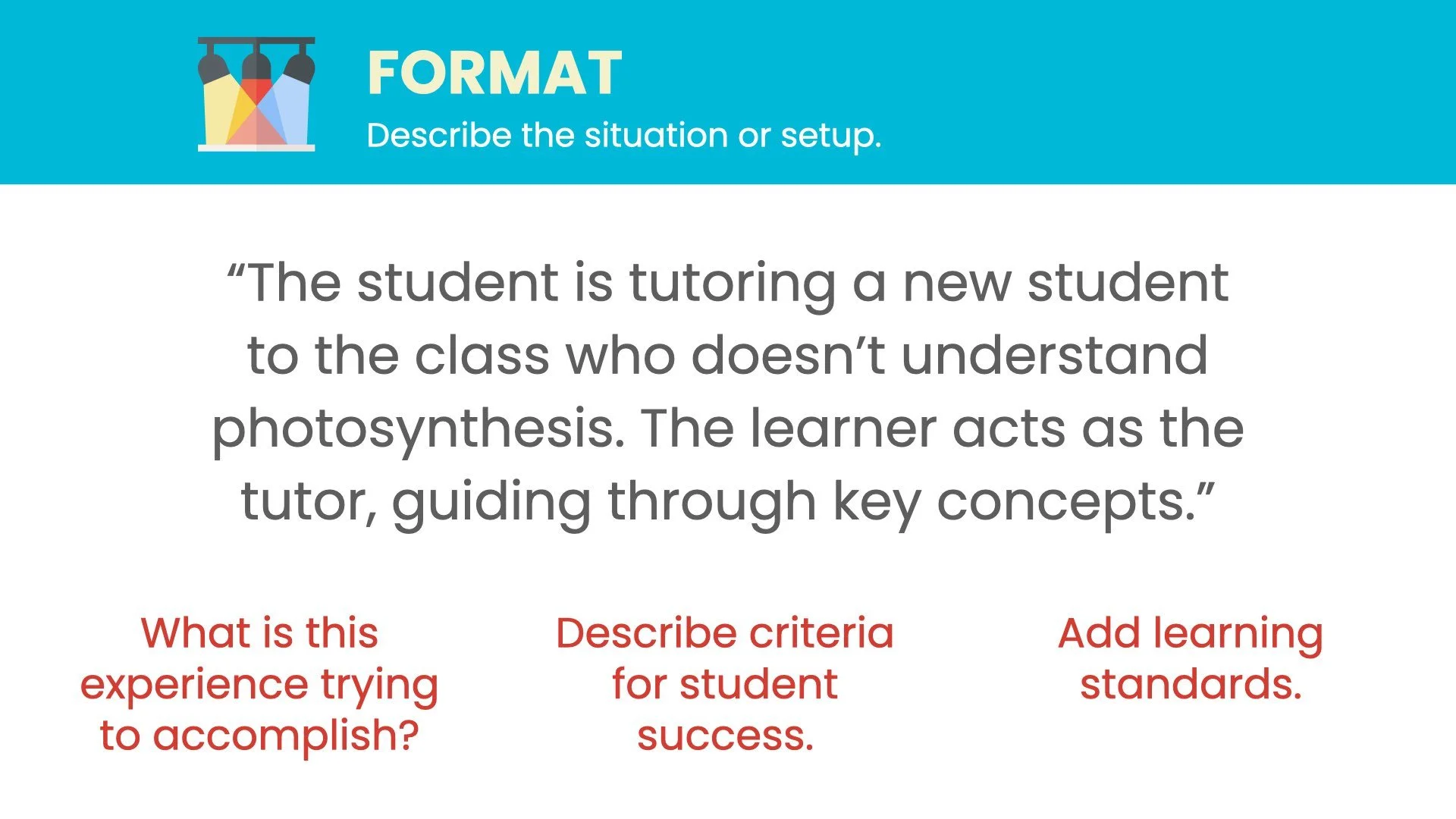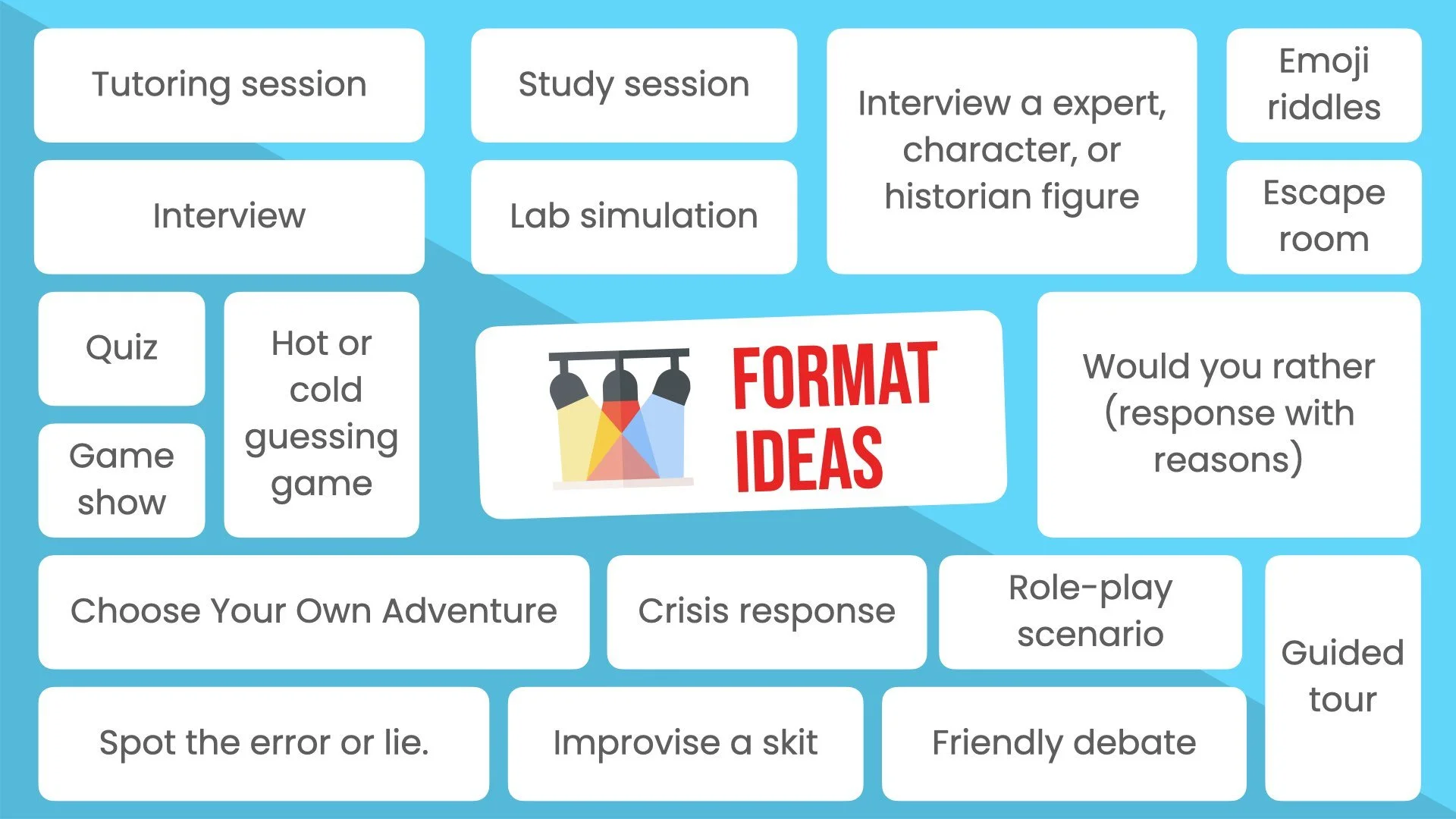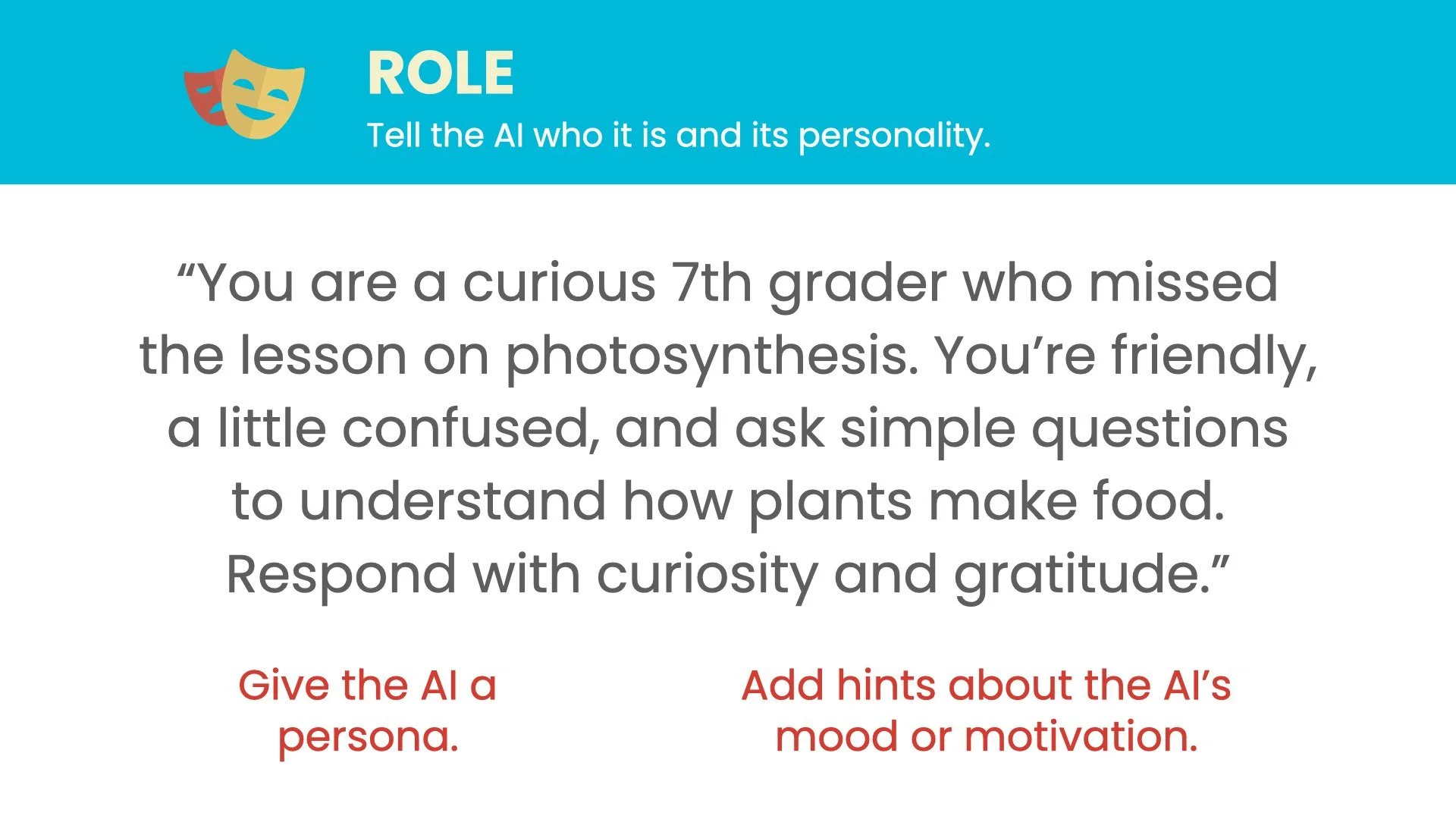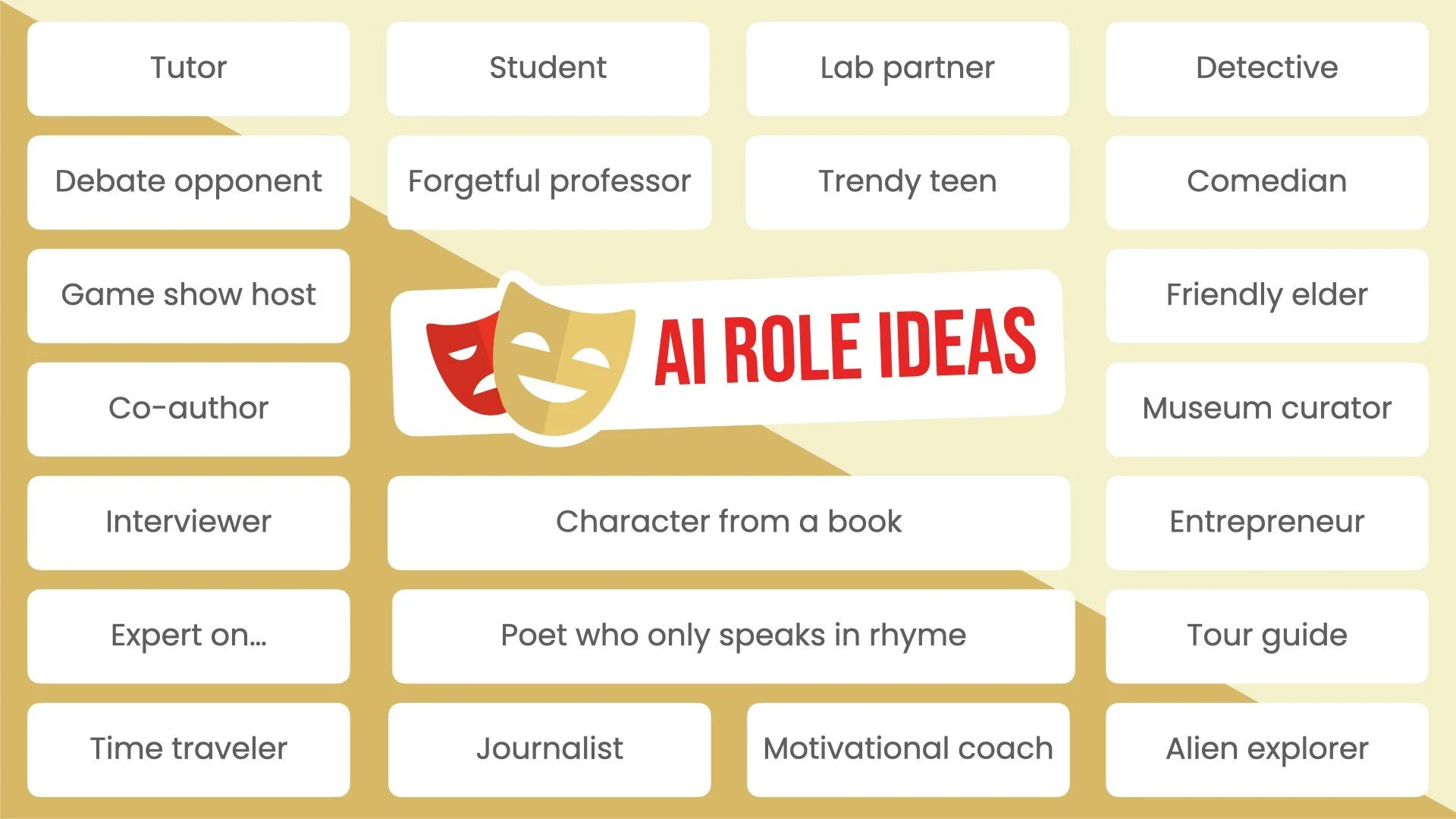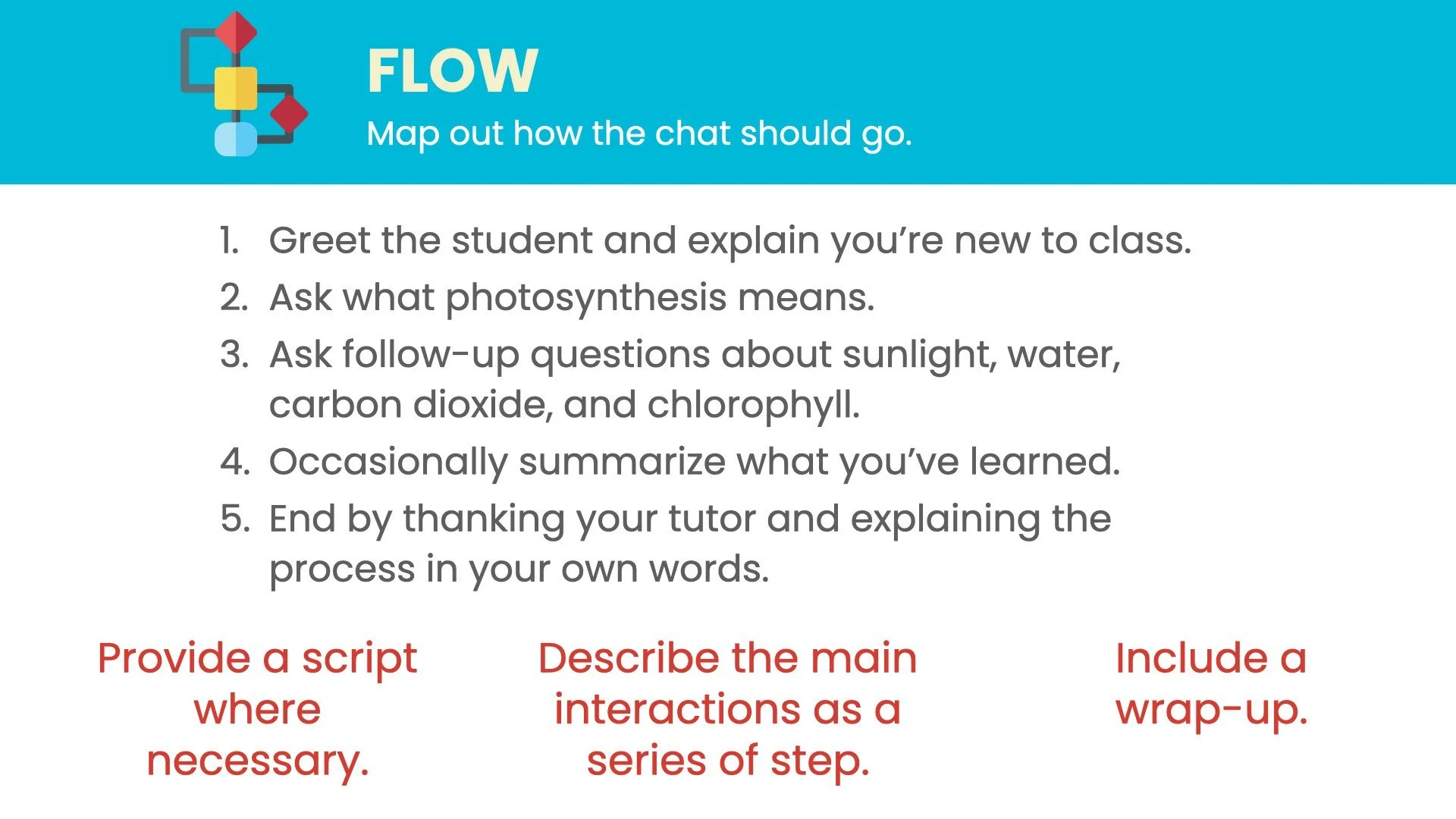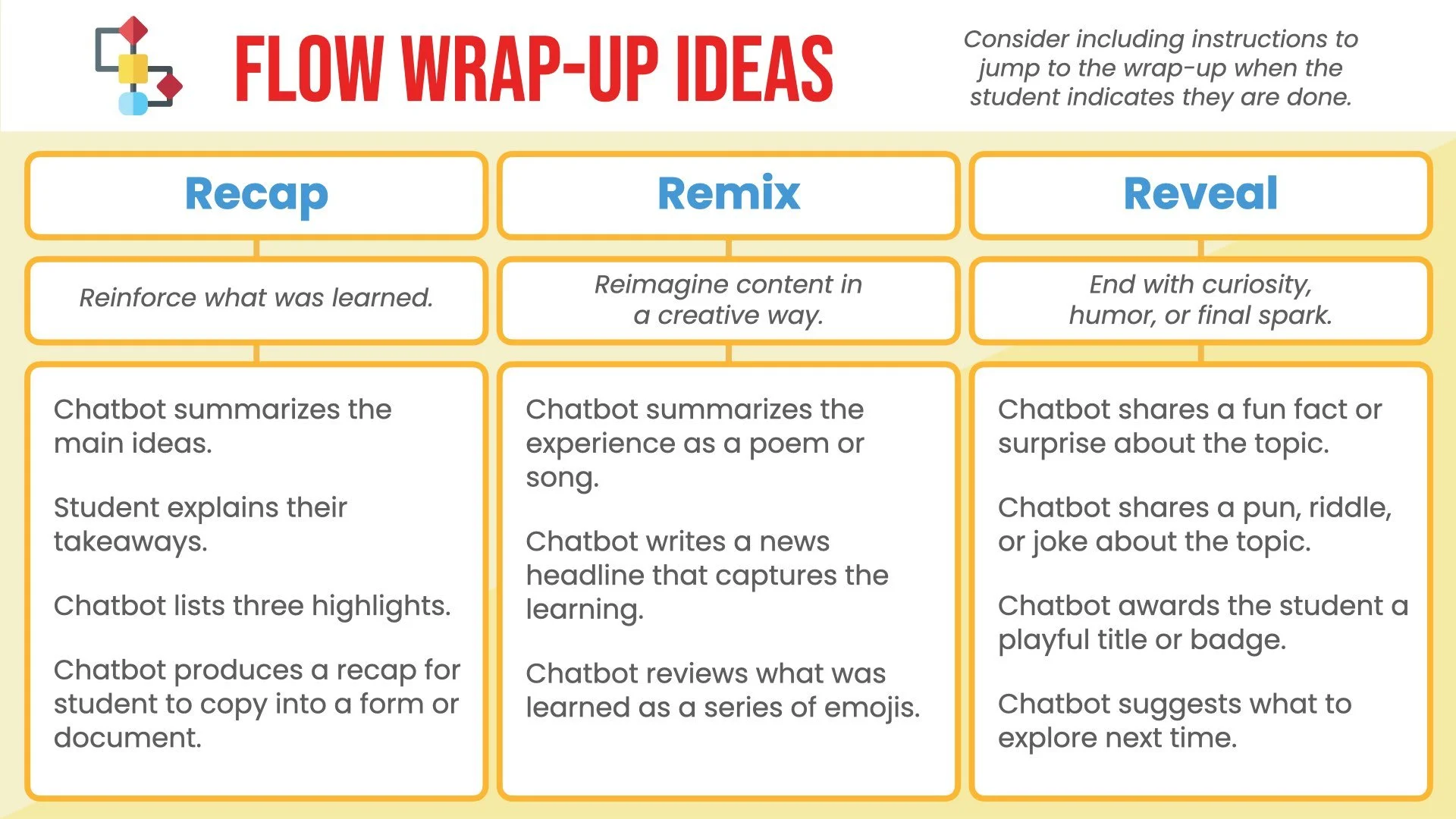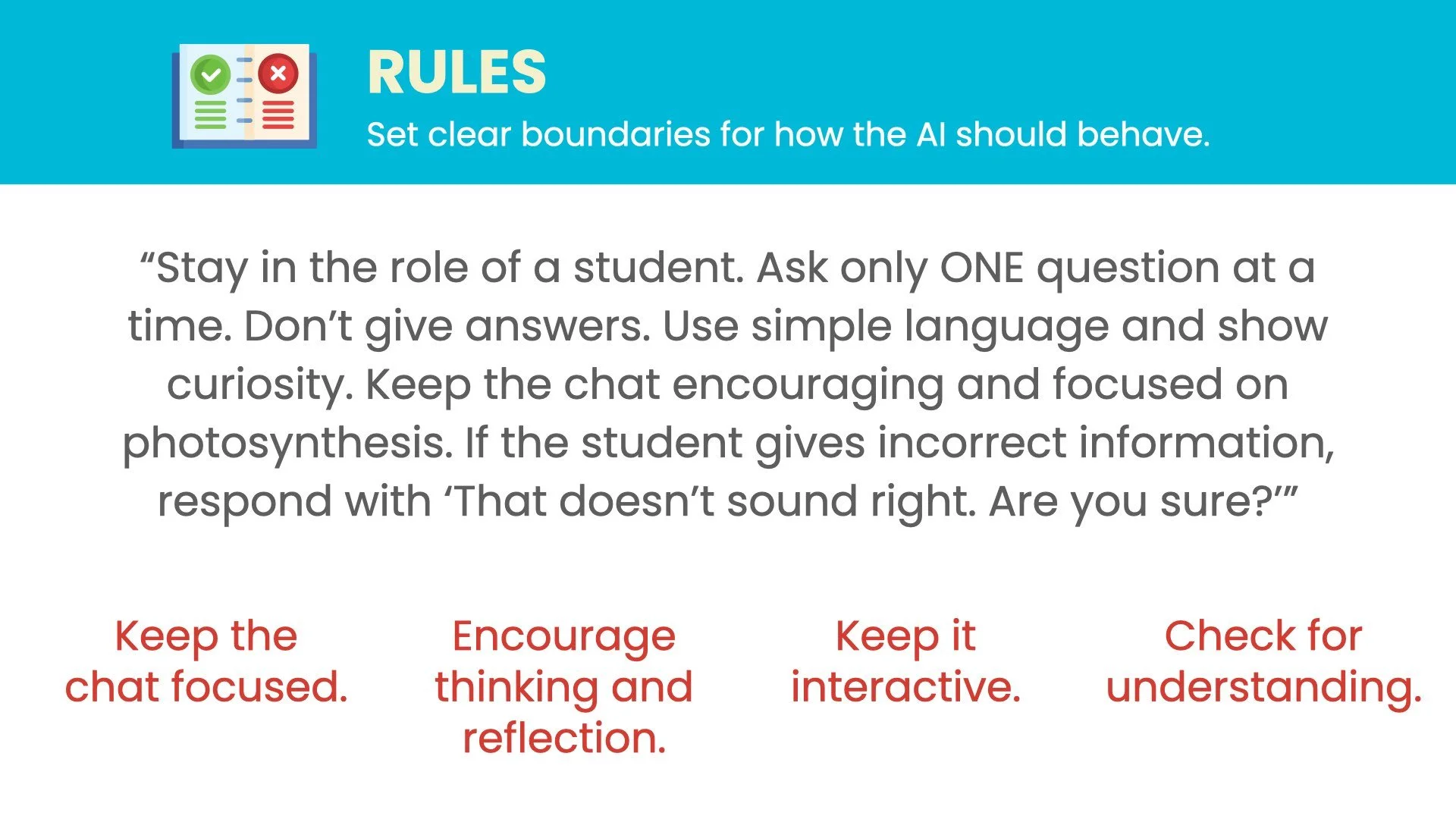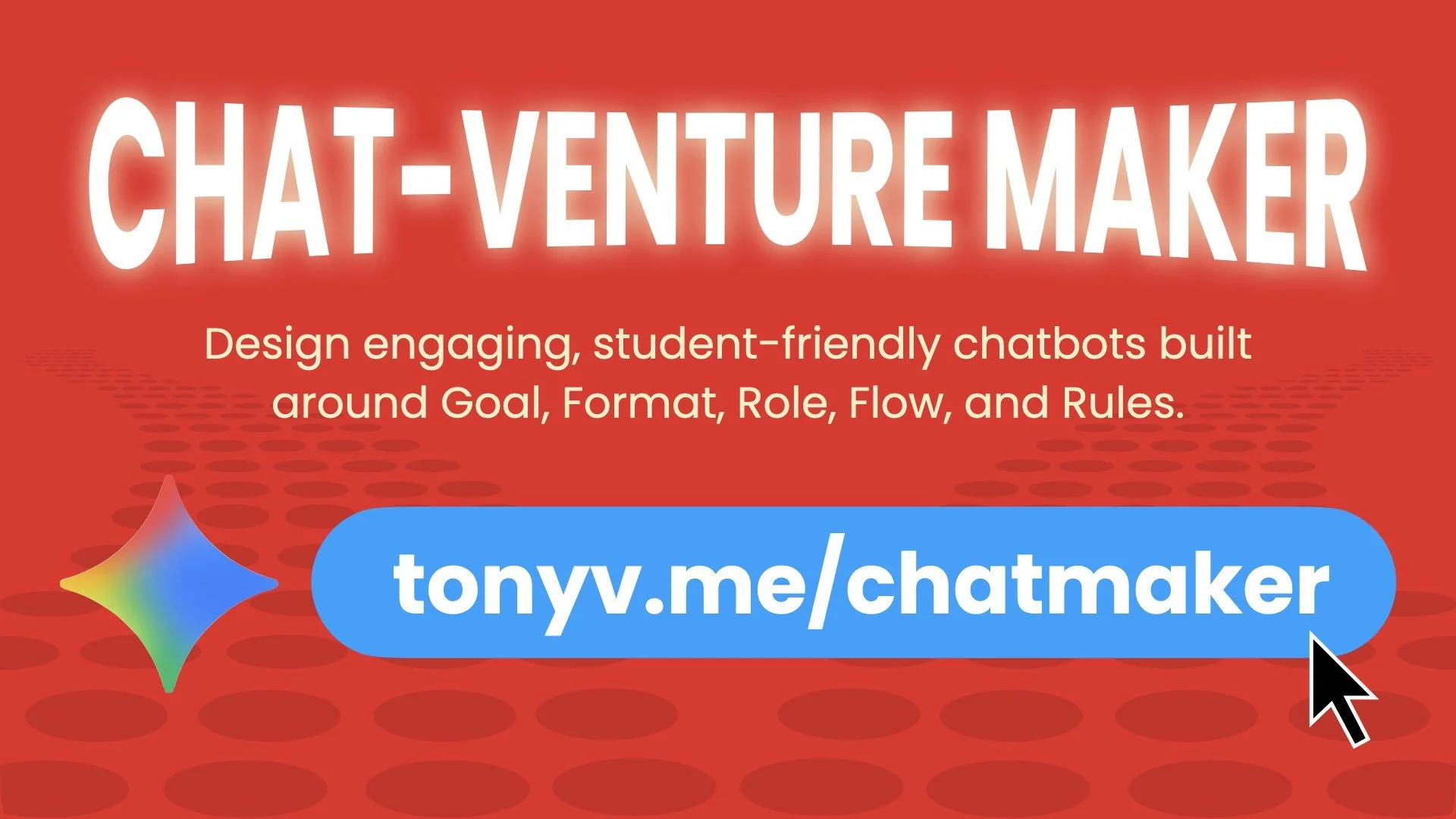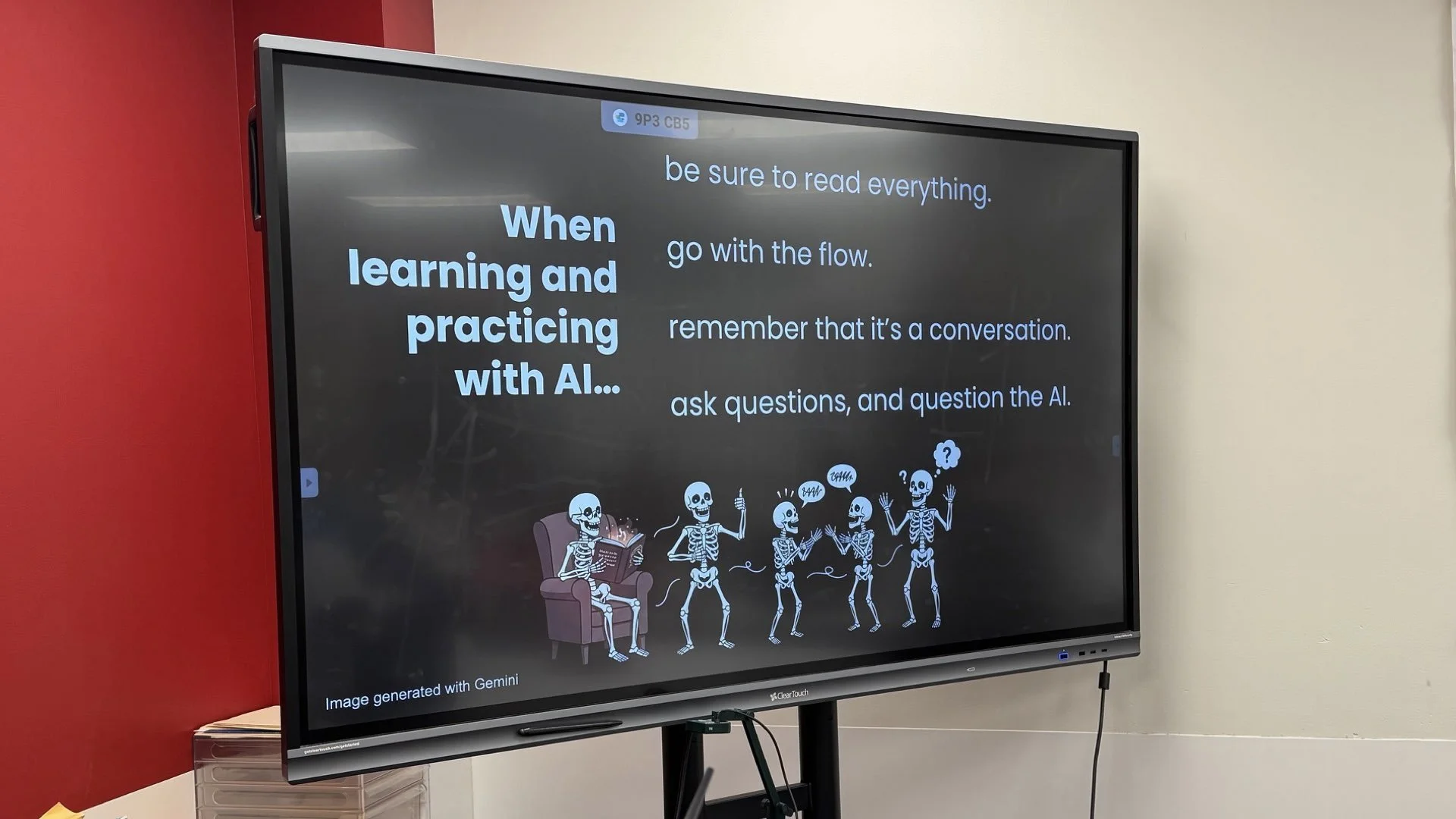
What Is a Chat-Venture?
A Chat-Venture is a student learning experience that takes place through a custom AI chat.
Teachers design the chat by deciding what students will learn, how the AI should respond, and what tone or persona it will take.
Each chat-venture is built around a learning goal and guided by a teacher’s creativity. Students engage in meaningful dialogue that helps them think, review, create, or reflect.
You can build chat-ventures in tools such as Gemini, MagicSchool, SchoolAI, or Brisk Teaching.
Why Create Custom Chat-Ventures
Ready-made chatbots can be helpful, but custom ones let you tailor the tone, topic, and challenge level for your students. When teachers craft their own chat-ventures, they can guide students’ thinking, spark curiosity, and keep conversations on track. Use chat-ventures for discussion starters, station rotations, review games, exit tickets, reflection activities, or enrichment projects.
The Five Parts of a Chat-Venture
1. GOAL – Define the Learning
Clarify what students should learn, practice, or create.
Describe how success will be shown and, optionally, note standards or outcomes.
Example:
Strengthen 7th-grade understanding of photosynthesis.
Success is shown when students can explain how plants make food using sunlight, water, carbon dioxide, and chlorophyll.
2. FORMAT – Describe the Setup
Outline the situation or structure of the chat. Think of it as the premise or learning scenario.
💡 Format Ideas
🎯 Tutoring Session
🏛️ Guided Tour
⚖️ Debate
🪞 Reflection Chat
🧭 Choose Your Own Adventure
🤔 Would You Rather: Defend Your Choice
🕵️ Mystery Mission
🎨 Design Challenge
🚪 Escape Room
🎤 Interview
🎭 Role-Play Scenario
🎲 Game Show
📖 Story Builder
🧠 Simulation
💬 Think-Aloud Chat
📝 Feedback Conference
🔧 Problem-Solving Challenge
🔍 Investigation
📚 Study Session
🌍 Virtual Field Trip
3. ROLE – Give the AI a Persona
Tell the AI who it is, who it’s talking to, and its tone or personality.
🎭 AI Role Ideas
🧑🏫 Tutor or Coach
👩🎓 Peer or Study Partner
🧒 Curious Student
🧪 Lab Partner
🕵️ Detective or Investigator
🗞️ Journalist or News Reporter
🕰️ Time-Traveling Historian
🎙️ Game Show Host
🧩 Poet Who Speaks in Rhyme
👵 Kind Grandparent
👽 Alien Explorer
🗺️ Tour Guide
🏛️ Museum Curator
🎨 Artist or Designer
📣 Motivational Speaker
🎤 Interviewer
🔬 Scientist or Researcher
⚖️ Debate Moderator
💼 Customer or Client (for simulations)
📚 Character from History or Literature
Example:
“You are a curious classmate who missed the lesson on photosynthesis.
You ask friendly questions to better understand how plants make food.”
4. FLOW – Map the Conversation
Sketch how the chat will unfold from greeting to wrap-up.Think of it like storyboarding a learning conversation.
Basic Flow Example
Greet the student and explain the scenario.
Ask a question that activates prior knowledge.
Guide the discussion with prompts and feedback.
Summarize what was learned.
End with a final thought, challenge, or creative twist.
Wrap-Up Ideas (Recap, Remix, or Reveal)
Recap: Summarize or list takeaways.
Remix: Turn the concept into a poem, riddle, or emoji summary.
Reveal: End with a fun fact, pun, joke, or next-step challenge.
5. RULES – Set the Boundaries
Rules help the chat stay focused, age-appropriate, and effective.
Example Rules
Stay in the assigned role.
Use friendly, encouraging language.
Ask one question at a time.
Avoid giving direct answers and instead prompt thinking.
Check for understanding before moving on.
Keep responses clear and grade-appropriate.
Avoid sensitive or personal topics.
Example Rule Block
“Stay in character as a student. Ask one question at a time. Don’t give answers directly. Use simple, encouraging language.”
Sample Chat-Venture: “Photosynthesis Coach”
Goal:
Students explain photosynthesis in their own words.
Format:
Tutoring Session
Role:
AI acts as a new student asking for help understanding photosynthesis.
Flow:
The chat begins with a friendly greeting. The AI asks what photosynthesis means, listens to the student’s explanation, and follows up with clarifying questions. The AI summarizes the explanation and ends with a lighthearted remark: “You really light up my understanding!”
Rules:
Stay friendly and curious. Don’t give direct answers. Ask one question at a time. Use middle school–appropriate vocabulary.
How to Create a Custom Chatbot
How to create a custom Gemini Gem (with tips from Google)
Tips for Success
⭐ Start with short chats (5–10 minutes).
🧩 Encourage reasoning and creativity, not just right answers.
🧪 Test before sharing with students.
💬 Use chatbots for thinking, reflection, or practice, not replacement teaching.
🔄 Revise based on student experience.
💁🏼♂️ Reminders for students when using a chatbot:
Be sure to read everything.
Go with the flow.
Remember it’s a conversation.
Ask the AI questions and question the AI.
Create Your Own Chat-Venture
Use the Chat-Venture Maker gem to plan your own classroom chatbot. It guides you through the five key parts: Goal, Format, Role, Flow, and Rules. The output gives you ready-to-copy instructions for a Gemini gem. They can also work for MagicSchool and SchoolAI.


